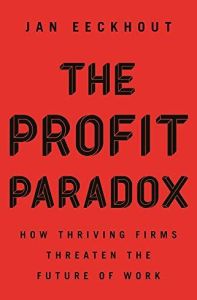Join getAbstract to access the summary!

Join getAbstract to access the summary!
Jan Eeckhout
The Profit Paradox
How Thriving Firms Threaten the Future of Work
Princeton UP, 2021
What's inside?
Firms are profitable but that is, in some ways, bad news. Find out why.
Recommendation
Equity investors prefer firms as protected from their rivals as medieval castles with deep moats. Recent decades have seen powerful companies boom that are all but impregnable to competition. This is good for their investors but bad for customers, workers, other stakeholders and democracy. Professor Jan Eeckhout lucidly explains why market power is toxic to the economy and contrary to capitalism’s fundamental principles. He draws on centuries of economic literature, but makes his case in language accessible even to those with no formal economics training. His provocative exposition of market power and its consequences tackles a subject fraught with political and social implications.
Summary
About the Author
Jan Eeckhout is the ICREA Research Professor at Pompeu Fabra University in Barcelona. He has also taught at the University of Pennsylvania, University College London, Princeton University and New York University. His work has been featured in The New York Times, The Wall Street Journal, The Economist and the Financial Times.
















Comment on this summary